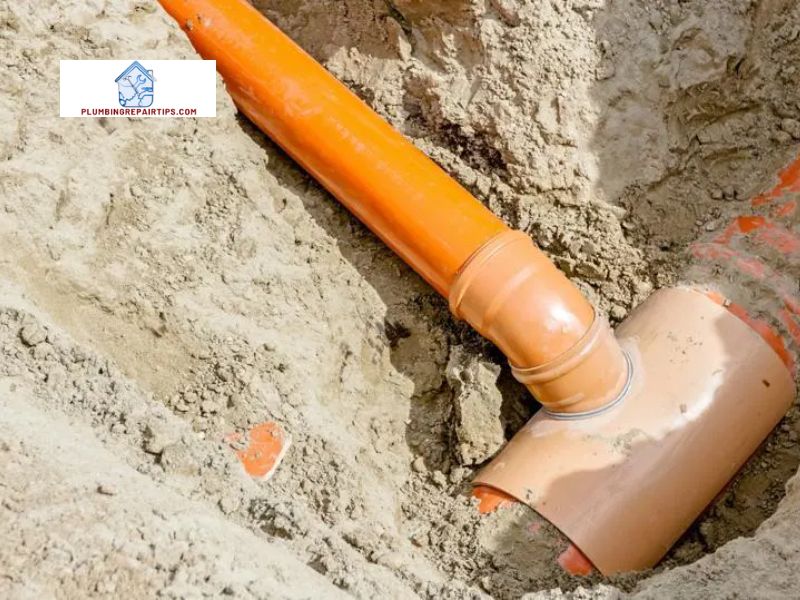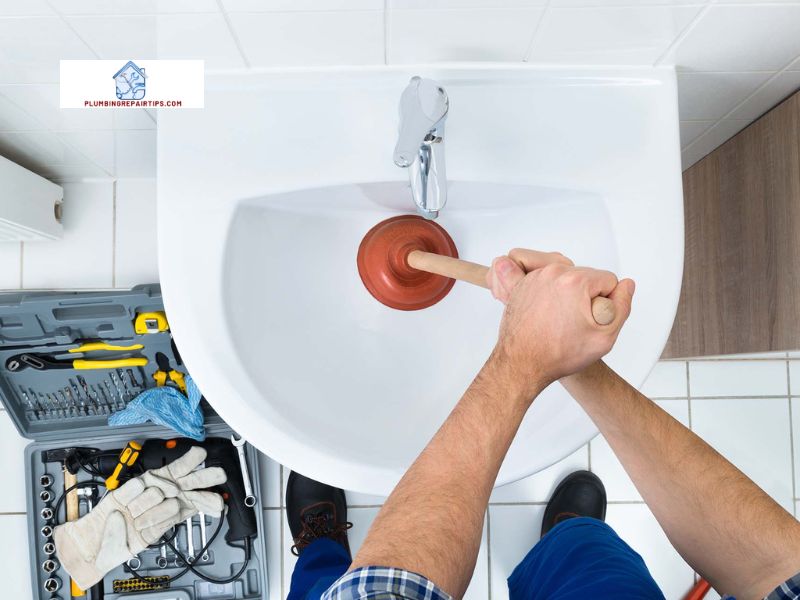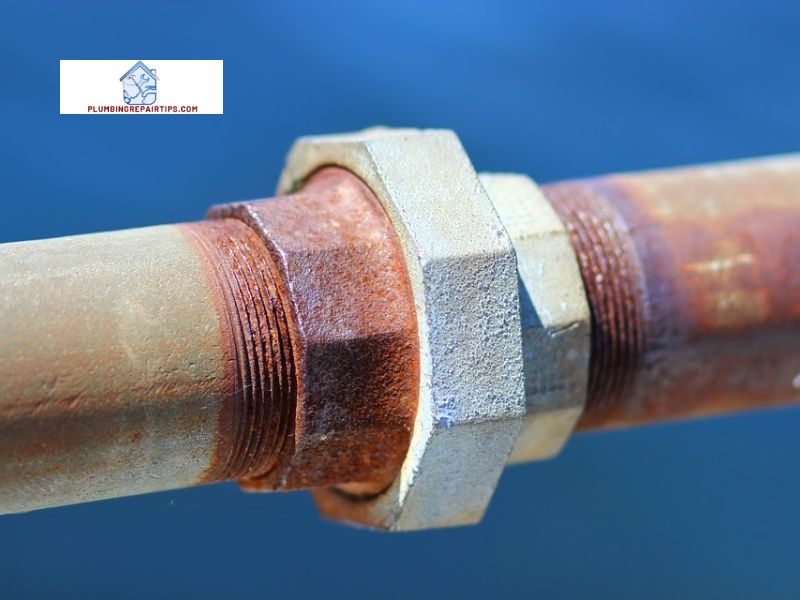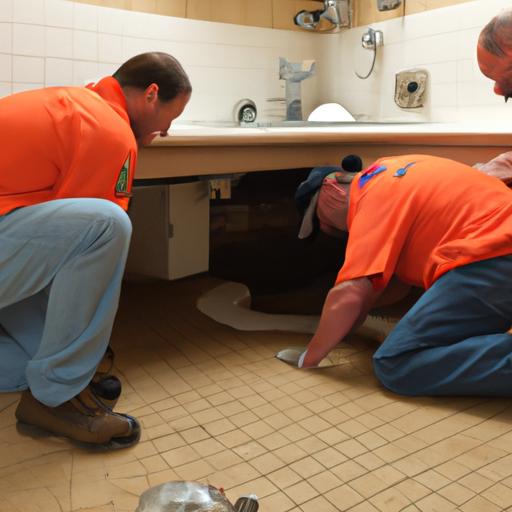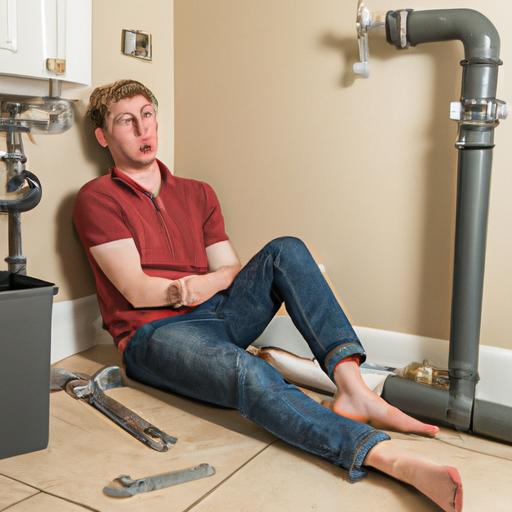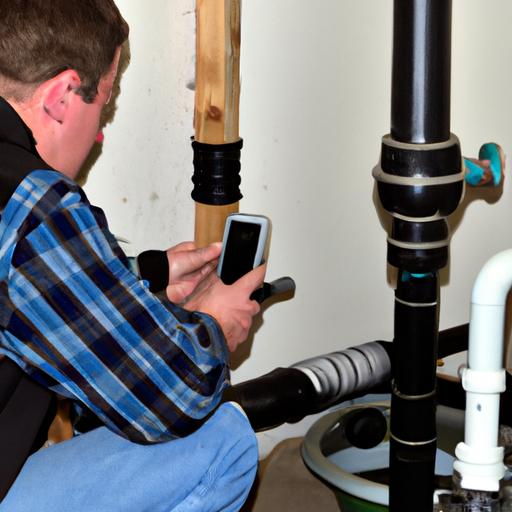When it comes to maintaining a safe and comfortable home, one area that often goes unnoticed is the basement plumbing system. While it may be out of sight, it should never be out of mind. A well-functioning basement plumbing system is crucial for the overall health and longevity of your home. In this article, plumbingrepairtips.com will explore the importance of basement plumbing repair and provide you with valuable insights to keep your basement plumbing in top shape.
Why is it important to maintain a well-functioning basement plumbing system?
Your basement plumbing system plays a vital role in ensuring the proper functioning of your home’s overall plumbing infrastructure. It is responsible for efficiently channeling wastewater away from your home, preventing damages that can lead to costly repairs. Neglecting Basement plumbing repair can result in a multitude of issues, ranging from minor inconveniences to major structural damage. By maintaining a well-functioning basement plumbing system, you can avoid potential problems and enjoy peace of mind.
Common issues that may require basement plumbing repair
Basement plumbing problems can manifest in various ways, and it is essential to recognize the signs early on. Some common indicators include water leaks, dampness, and mold growth. These issues not only compromise the structural integrity of your home but can also pose health hazards to you and your family. Additionally, unpleasant odors and sewage backups are clear indicators that your basement plumbing requires immediate attention. Ignoring these signs can lead to severe consequences, so it’s vital to address them promptly.
In the next section, we will delve into the underlying causes of basement plumbing problems, shedding light on the factors that contribute to the deterioration of your system. Stay tuned to discover the root causes and gain valuable insights into preventing basement plumbing issues.
Signs of Basement Plumbing Problems
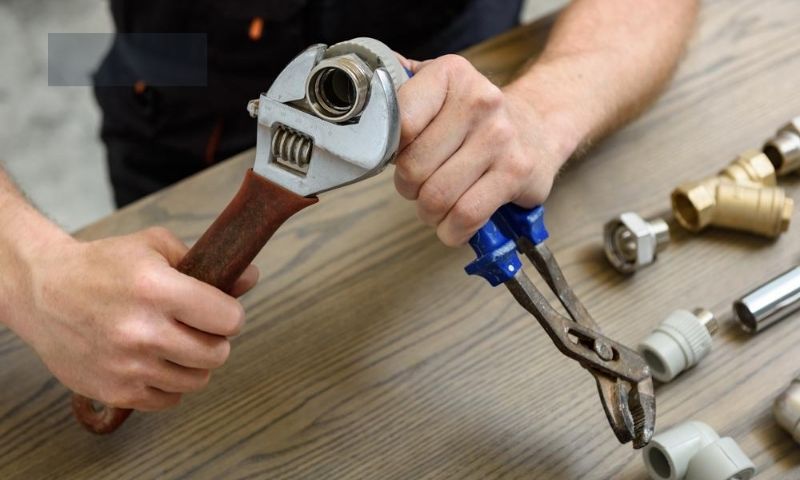
When it comes to your basement plumbing system, early detection is key to preventing major issues down the line. By recognizing common symptoms of basement plumbing issues, you can take swift action and save yourself from costly repairs. Let’s explore some telltale signs that indicate potential problems with your basement plumbing.
Recognizing common symptoms of basement plumbing issues
- Slow drains: If you notice that water is draining slowly in your basement sink, shower, or toilet, it could be indicative of a clog or blockage in the pipes. Ignoring this issue can lead to complete blockage and potential backups.
- Water stains or puddles: Keep an eye out for water stains or puddles in your basement, especially near plumbing fixtures or pipes. These can be signs of leaks, which, if left unaddressed, can cause structural damage and mold growth.
- Unpleasant odors: Foul smells emanating from your basement could be a sign of sewage backup or a damaged sewer line. These odors are not only unpleasant but also pose health risks to you and your family.
Water leaks, dampness, and mold growth
Water leaks are a common basement plumbing problem that can wreak havoc on your home. Leaky pipes, joints, or fixtures can lead to dampness, which creates an ideal breeding ground for mold and mildew. Mold growth not only compromises the air quality in your home but can also cause respiratory issues and allergies.
Unpleasant odors and sewage backups
If you detect sewer-like odors in your basement or notice sewage backups in your drains or toilets, it is crucial to address these issues promptly. These signs often point to a problem in your sewer line or a blockage in the plumbing system. Ignoring these problems can result in sanitary hazards and damage to your property.
By being vigilant and recognizing these signs of basement plumbing problems, you can take the necessary steps to prevent further damage. In the next section, we will explore the underlying causes of basement plumbing problems, shedding light on the factors that contribute to these issues. Stay tuned to gain a deeper understanding and take proactive measures to protect your basement plumbing system.
Causes of Basement Plumbing Problems
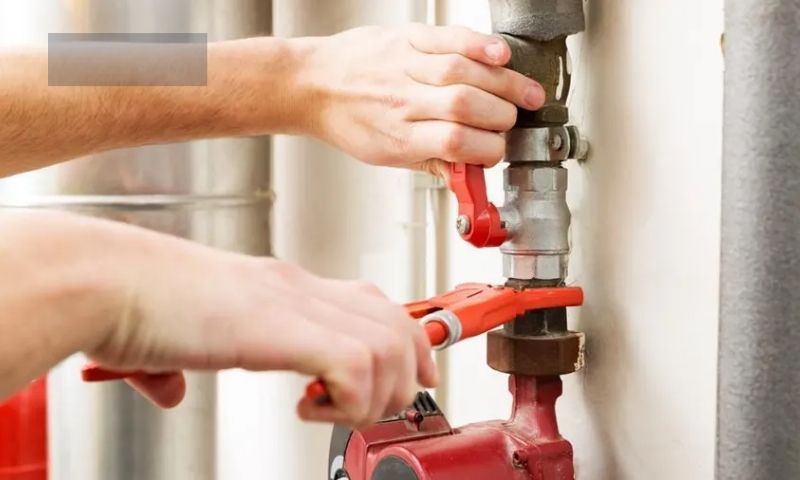
When it comes to basement plumbing issues, understanding the underlying causes is crucial in preventing future problems. Let’s explore some of the primary factors that can lead to basement plumbing problems:
Aging Pipes and Corrosion
Over time, pipes in your basement plumbing system can deteriorate due to aging and corrosion. This is especially true for older homes with outdated plumbing systems. As pipes age, they become more susceptible to cracks, leaks, and blockages. Corrosion can also occur, leading to weakened pipes and reduced water flow. Regular inspections and proactive maintenance can help identify aging pipes and address potential issues before they escalate.
Tree Root Intrusion
The beauty of trees can sometimes pose a threat to your basement plumbing system. Tree roots have a natural instinct to seek out sources of water, and unfortunately, they can infiltrate your pipes. As roots grow, they can cause significant damage, leading to clogs and even pipe breakage. It’s important to be mindful of the proximity of trees to your plumbing system and take preventative measures, such as regular root pruning or installing root barriers, to minimize the risk of tree root intrusion.
Improper Installation or Maintenance
Faulty installation or inadequate maintenance practices can also contribute to basement plumbing problems. Poorly installed pipes or fixtures can lead to leaks and insufficient water flow. Additionally, neglecting routine maintenance, such as proper cleaning and drain clearing, can result in blockages and backups. It is essential to ensure that your basement plumbing system is installed correctly and that regular maintenance is conducted to keep it in optimal condition.
Extreme Weather Conditions
Extreme weather conditions, such as freezing temperatures or heavy rainfall, can wreak havoc on your basement plumbing system. Freezing temperatures can cause pipes to freeze and burst, resulting in water damage and costly repairs. Excessive rainfall can overload the system, leading to backups and flooding. Taking preventive measures, such as insulating pipes or installing sump pumps, can help protect your basement plumbing system from the adverse effects of extreme weather conditions.
Understanding the causes of basement plumbing problems empowers you to take proactive steps in preventing issues from arising. In the next section, we will explore some DIY basement plumbing repair tips to help you address minor issues on your own. Stay tuned to discover how you can become your own plumbing hero!
DIY Basement Plumbing Repair Tips

When faced with basement plumbing issues, it can be tempting to immediately call a professional plumber. However, there are certain repairs you can tackle on your own, saving you time and money. Before diving into any DIY basement plumbing repair, it’s essential to follow a few necessary steps to ensure a successful outcome.
Steps to take before attempting repairs
- Assess the situation: Start by identifying the specific problem and understanding its severity. Is it a minor leak or a major issue that requires professional intervention? Assessing the situation will help you determine if it’s within your skill set to handle the repair.
- Gather information and resources: Research the problem at hand and gather relevant information from trusted sources. Online tutorials, instructional videos, and manufacturer’s guidelines can provide valuable insights. Additionally, ensure you have all the necessary tools and materials before starting the repair.
Tools and materials needed for basic repairs
To tackle basic basement plumbing repairs, you’ll need a few essential tools and materials. Some commonly required items include:
- Adjustable wrench
- Pipe wrench
- Plunger
- Pipe cutter
- Plumber’s tape
- Sealant
- Pipe fittings
- Drain cleaner
Having these tools readily available will enable you to handle a wide range of simple repairs effectively.
Common DIY basement plumbing repairs
While every plumbing issue is unique, there are a few common repairs that homeowners can often handle themselves. Two prevalent problems that can frequently occur in a basement plumbing system are fixing leaks and unclogging drains.
Fixing leaks: Leaks can lead to water damage and increased utility bills. Identify the source of the leak and determine if it requires a simple tightening of a loose connection or the replacement of a damaged pipe or valve.
Unclogging drains: Clogged drains can cause backups and inconvenience. Utilize a plunger or a drain snake to remove debris and restore proper drainage. Avoid using harsh chemicals as they may damage your pipes.
Remember, if you are unsure about any repair or if the issue is beyond your expertise, it’s always best to consult a professional plumber. In the following section, we will discuss the importance of hiring a licensed plumber and the factors to consider when making that decision. Stay tuned to make an informed choice for your basement plumbing repair needs.
Hiring a Professional for Basement Plumbing Repair
When it comes to basement plumbing repair, it’s crucial to recognize the limitations of DIY solutions. While some minor issues can be fixed with basic knowledge and tools, more complex problems require the expertise of a licensed plumber. Here are the key reasons why hiring a professional is the best course of action:
Benefits of hiring a licensed plumber
- Expertise and Experience: Licensed plumbers possess the necessary training and experience to tackle a wide range of basement plumbing issues. They have an in-depth understanding of the complexities involved, allowing them to identify and address problems efficiently.
- Quality Workmanship: A professional plumber ensures that the repair work is done to the highest standards. Their expertise guarantees that the repairs are durable and long-lasting, avoiding future issues.
- Compliance with Codes and Regulations: Licensed plumbers are well-versed in local building codes and regulations. By hiring a professional, you can rest assured that your basement plumbing repairs will meet all necessary requirements, ensuring the safety and legality of the work.
Evaluating credentials and experience
When selecting a plumber for your basement plumbing repair, it’s essential to evaluate their credentials and experience. Consider the following factors:
- Licensing and Certifications: Ensure that the plumber holds a valid license and any relevant certifications. This confirms their qualifications and adherence to industry standards.
- Experience: Look for a plumber with a proven track record in basement plumbing repair. Consider their years of experience and inquire about similar projects they have successfully completed.
- References and Reviews: Request references from previous clients or check online reviews to gauge the plumber’s reputation. Positive feedback and testimonials are indicators of their reliability and quality of work.
Obtaining multiple quotes for comparison
To make an informed decision and get the best value for your investment, it’s advisable to obtain multiple quotes from different plumbers. This allows you to compare pricing, scope of work, and estimated timelines. Remember, the cheapest option may not always be the best, so consider the overall expertise and reputation of the plumbers before making a final decision.
By hiring a professional plumber who meets your requirements and expectations, you can ensure that your basement plumbing repair is handled with precision and expertise. In the following section, we will explore preventive measures you can take to maintain the health of your basement plumbing system. Stay tuned to learn more about proactive maintenance tips.
Conclusion: Safeguard Your Basement Plumbing for a Stronger Home Foundation
In conclusion, the importance of maintaining a well-functioning basement plumbing system cannot be overstated. By addressing basement plumbing repair issues promptly, you can protect your home from potential damages and costly repairs. Remember to be vigilant and keep an eye out for common signs such as water leaks, dampness, mold growth, unpleasant odors, and sewage backups.
To ensure the longevity of your basement plumbing system, it is crucial to understand the underlying causes of these issues. Factors such as aging pipes, tree root intrusion, improper installation, and extreme weather conditions can all contribute to basement plumbing problems. By identifying these root causes, you can take proactive measures to prevent future issues.
While some minor basement plumbing repairs can be tackled through DIY methods, it is recommended to hire a professional plumber for complex or extensive repairs. Their expertise and experience will ensure that the repairs are done correctly and effectively, minimizing the risk of further damage.
Furthermore, regular preventive maintenance is key to preserving the health of your basement plumbing system. Schedule routine inspections and maintenance checks to catch potential issues early on and implement preventive measures to avoid costly repairs down the line.
By prioritizing the maintenance and repair of your basement plumbing system, you are safeguarding the foundation of your home. Don’t overlook this crucial aspect of homeownership. Take action now to ensure a solid and reliable basement plumbing system for years to come.
Remember, a well-maintained basement plumbing system is the hidden strength that supports the overall functionality and comfort of your home. So, invest in its care and enjoy the peace of mind that comes with a reliable and efficient plumbing system.
